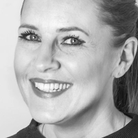So you get it, you understand that you need to be sensible about who you see for your injectables. They’re medical procedures, with fillers or toxins going into your face. You know it’s imperative you choose someone who is a healthcare professional, is qualified and uses premium products. But then, people sometimes aren't so fussy about who they visit for other treatments, such as laser hair removal, B12 injections, fat dissolving, microneedling and chemical peels. Some feel they’re not as risky, so anyone can do them. It’s no big deal.
It's Not Just Fillers That Can Go Wrong!
Spoiler: It Is A Huge Deal.
What may seem a fairly low-risk beauty treatment to you, has the potential to go seriously wrong. Make no mistake, you can die. Medical aesthetic practitioners are experiencing an overwhelming number of complications referrals. People who are suffering from infections, severe pain, problems with mobility and lumps and bumps because poorly qualified and inexperienced practitioners are offering a plethora of treatments they shouldn’t be. More people than ever are undertaking bogus training courses and setting up shop selling treatments that should only ever be conducted under the supervision of a medically-qualified practitioner.
When It Goes Wrong, It Goes Really Wrong!
Take this patient who visited a non-medic for fat dissolving injections. Soon after the treatment, the patient told the practitioner the area was hot, red and felt painful. All of the signs of an infection. Yet, she was told that was normal and to put something warm on it and give it a good ‘rub’. When contacted again, the practitioner refused to help further because they were ‘on holiday, babe’.
Patient develops abscess after non-medic injected fat dissolver. Image courtesy of Lyon Aesthetics
What Had Happened?
In this particular case, the patient went on to develop an abscess. An abscess is the body's way of trying to heal from an infection. Abscesses form after bacteria, fungi, or other germs enter the body — usually through an open wound like a cut — and cause an infection.
An infection can lead to sepsis. Sepsis is the body's extreme response to an infection. It is a life-threatening medical emergency. Sepsis happens when an infection you already have triggers a chain reaction throughout your body. You can die from Sepsis. So essentially this non-medic left the patient to potentially die.
Fortunately, the patient went to A & E where she then received the necessary antibiotics...for 50 days, including intravenously!
A pretty horrific experience for anyone to go though and all completely avoidable when done with medics who can prevent and treat complications.
Why Did It Happen?
Gillian Murray is a leading aesthetics complications expert and prescribing clinical pharmacist. She took to Instagram to express her extreme concern about this case and why the lack of regulation is a key factor in the proliferation of complications happening in the UK. Gillian explains that while non-medics can inject anything - whether it’s Botox, fillers, threads, vitamins, or fat dissolver, what they are unable to do (on the whole) is prevent or pick-up problems.
Prevention Is Better Than Cure
Infection control is the bread and butter of medical practice. Non medics aren’t going to be as well versed or trained in aseptic technique, which means using practices and procedures to prevent contamination from pathogens (bad stuff!). It involves applying the strictest rules to minimize the risk of infection.
Healthcare workers use aseptic techniques in surgery rooms, clinics, outpatient care centres, and other health care settings. Non-medics might not be doing this. And it's these basics which are essential to prevent infection.
Cutting Corners To Make Money
There's also less regulation regarding where non-medics get their products from or what they're using?
Medics are accountable to their respective statutory bodies and are required to have insurance. One of the stipulations is that they use legit products and use them appropriately. They won’t risk using unlicensed products - as it might jeapordise their registration. There is a glut of unlicensed products making their way to the UK, and Gillian notes that because they haven’t been through the correct channels, ‘they are ripe for tampering, ripe for falsification and who knows what’s in them’
Gillian is quite rightly hopping mad that the lack of regulation in the UK leads to complications like this. How long before a death occurs?
Bad Things Happen To Medics Too?
They do. Nothing is risk free. Gillian quite rightly explains, however, there are issues that are statistical risks and there are issues that are due to poor infection control, lack of awareness about the product they’re using and the distinct lack of medical training to prevent, limit and assess an issue. Furthermore, medics are accountable. They are registered with their statutory bodies. They have standards and policies they have to adhere to. Who are non-medics accountable to? Nobody. Who can you report a complaint to if something goes wrong? Nobody.
How Do You Know Who To See For What Treatment?
It’s tricky isn’t it? What are beauty treatments, what are medical treatments? It’s all blurred. Your local beauty salon offers B12 injections, you can buy a discount code on Wowcher and get your fat dissolved with a 'qualified aesthetics practioner', there’s even a non-medic set up in my local gym who offers non-surgical eye blepharoplasty (side note: no non surgical treatment is really going to get rid of those hooded eyelids!) … so how do you know who you can trust for what treatments?
Sadly you don’t, so that’s why you can’t risk it by just instinctively trusting anyone who says they trained and can offer these treatments. Just because they can, it doesn't mean they should. You have to do your own research, you have to be your own advocate, you have to think twice about the person who is doing something to your face or body. A lovely massage, an eyebrow tint, acrylic nails, getting your legs waxed… we used to know where we were with beauty treatments but thanks to zero regulation, the abundance of training courses and the proliferation of ready-to-buy illegitimate products (and the ability for non medics to make more money) it’s now more confusing than ever. So keep your wits about you, ask lots of questions, check their backgrounds, ask to see training evidence, and yes make sure they're at least a medical pro when the treatment feels less beauty and more medically - do the leg work - don't die.
Use Glowday to find a practitioner in your area. Many of them will also work with beauty therapists who offer a range of complementary beauty treatments and you can feel assured you’re in very safe hands.

